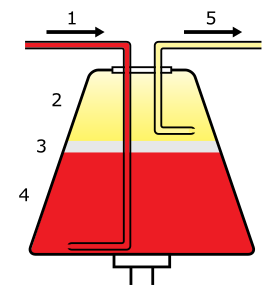
The donation of blood and the entire transfusion chain are under the responsibility of a single public body, the Blood Establishment. The ethical values associated with donation in France ensure the safety of both blood donors and recipients of blood products. Several types of blood donation are possible, depending on the needs of the patients. To be able to give blood, you have to fulfill a number of conditions. With the platelet donation process this is important now.

EFS and the ethical values of blood donation
Since 1 January 2000, the donation of blood and the entire transfusion chain are under the responsibility of a single public body, the Blood Establishment (EFS). Under the supervision of the Ministry of Health, the EFS thus have a monopoly in the following areas:
- Blood collection
- The preparation of blood products
- Biological qualification of donations
- The distribution of blood products to health facilities, whether public or private.
EFS also supply the French Fractionation and Biotechnology Laboratory (LFB) with plasma for the manufacture of blood-derived medicinal products. The main mission of the EFS is to ensure self-sufficiency in blood products throughout France, ensuring optimal safety and quality conditions. To ensure this mission, the establishment has 128 collection sites and organizes everywhere in France mobile blood collections. The donation is based on 4 fundamental ethical values, which guarantee optimal safety for both donors and recipients:
- Anonymity: only the EFS knows the personal data of the donor and the receiver
- Volunteering: the gift of blood is a free and voluntary act
- No profit: blood and blood products cannot be profitable
- Volunteering: No remuneration can be collected for a blood donation.
- Blood and different types of blood donation
Blood is made up of several elements:
Plasma, the liquid part of the blood, which contains many substances (proteins, antibodies, hormones, nutrients)
Cells:
Red or red blood cells or erythrocytes (44%), which transport oxygen and carbon dioxide between the lungs and cells
White blood cells or leucocytes (<1%), of different types, that participate in the body's immune system Platelets or thrombocytes (<1%), which coagulate blood to prevent or stop bleeding. To meet the needs of patients, several types of blood donations are implemented:
- Whole blood donation, in which red and white blood cells, platelets and plasma are collected
- Plasma donation
- The gift of platelets.
Plasma collected is used for two types of applications:
- Therapeutic transfusion of plasma (10%)
- The manufacture of drugs derived from blood (90%). Blood-derived drugs are plasma constituents isolated and purified for their therapeutic benefit. It is mainly albumin (major plasma protein), coagulation factors and immunoglobulins (antibodies).
Who can give and when?
To give blood, one must fulfill several conditions:
- To be in good health
- Be between 18 and 70 years old (or 65 for certain donations)
- Weigh at least 50 kg
- Not to be subject to legal protection, such as guardianship
- Be recognized as fit for donation at the end of the pre-donation medical interview.
Similarly, there should be no medical contraindications to the donation of blood, these contraindications may be temporary or permanent. For example, it is possible to mention:
- A pregnancy in progress
- An ongoing infection
- Certain chronic diseases
- A history of blood transfusions
- Sexual relations at risk
- Immune deficiency
- Taking certain medications
For people who have a contraindication to donating blood, it is possible to donate blood as part of an on-therapeutic donation. The collected blood is then used for the production of reagents for biological analyzes, for scientific research or for the training of students.



